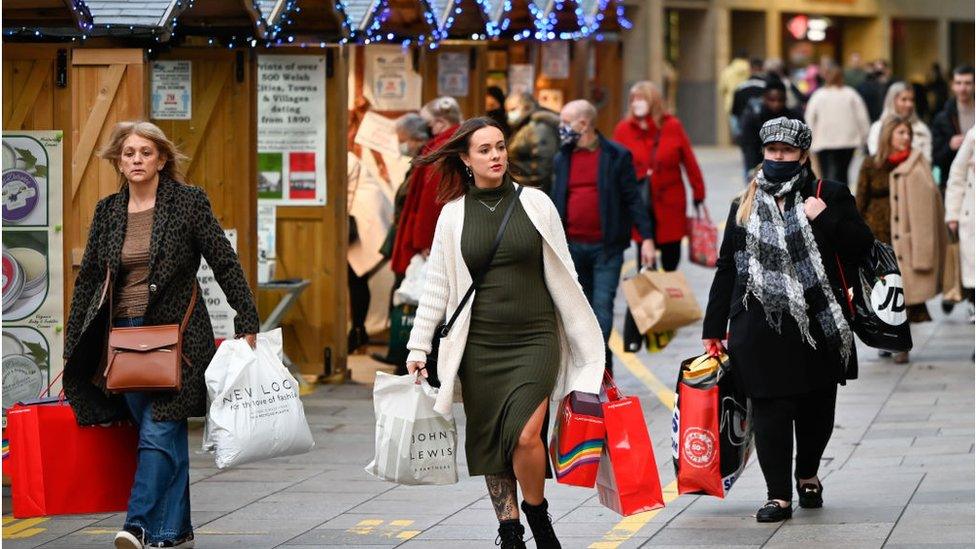High Street crisis: 'Regular customers are keeping us going'
- Published
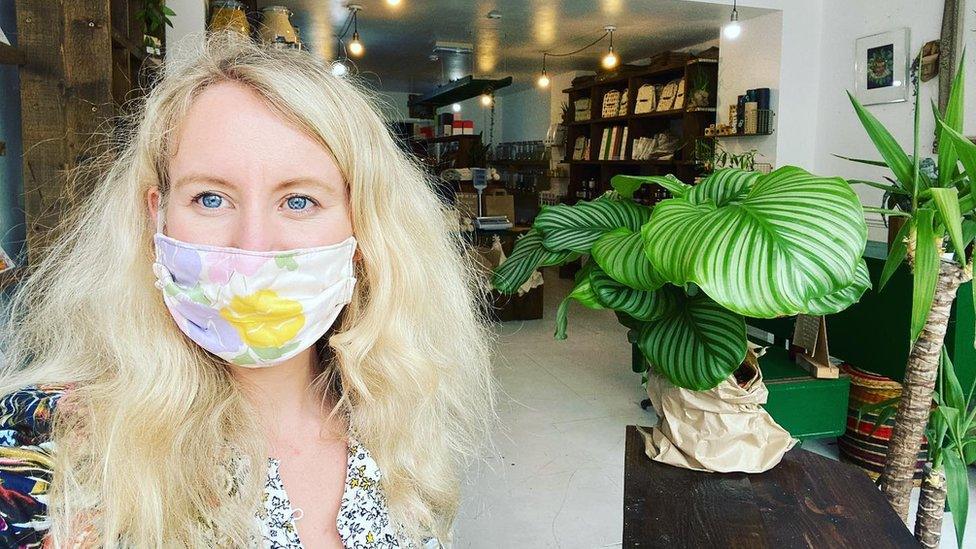
Faye Jennings-Mosequera says the "passing traffic" that used to enter her shop has all but disappeared.
For many High Street shops the pandemic has been a torrid time with the stress felt across the retail community.
But Faye owns an independent, zero-waste supermarket in Exeter city centre, which has been allowed to stay open during the pandemic as an essential retailer.
It is in a part of the city dedicated to independent shops.
Although the shop she runs with her husband, Ernesto, is open, "we barely see any passing traffic, whereas that used to be a large part of our custom... walking to work, or after the school run," she says.
'Survivor's guilt'
"The business has survived solely on our regulars. They're continuing with their routine to buy their plastic-free foods."
Other non-essential shops which have had to shut their doors have not been so lucky.
More than 16,000 stores in the UK have closed amid the pandemic and research given to BBC Radio 5 Live's Wake Up to Money predicts that 2021 will be worse.
The Centre for Retail Research is forecasting a 18% rise in closures this year - an average of 358 per week, which could result in up to 200,000 job losses.
Prof Joshua Bamfield, who carried out the research, told the BBC: "We're expecting it to be a very grim year."
He said that while not every part of the retail sector was "mortally wounded", fashion, town centre stores and department stores were "in difficulties" and would require government support or would fail "in the next few months".
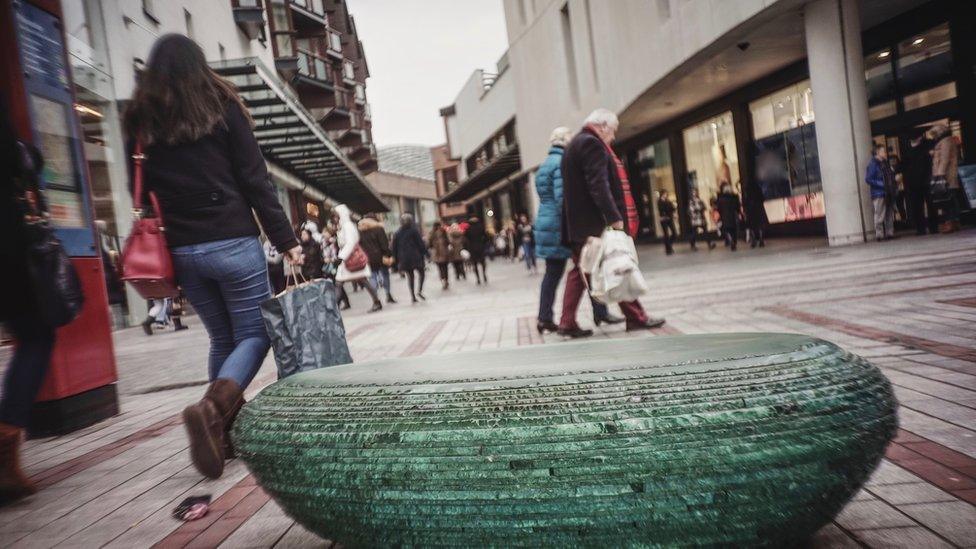
In pre-lockdown times: Exeter's Princesshay shopping district is home to many well-known retailers
Chris Harper owns Hops and Crafts, a craft beer shop in Exeter's West Quarter. His business has been allowed to stay open, classed as an essential retailer because it sells alcohol.
"I'm in a fortunate position where my business is not the sole provider for my family. Sales were not as bad as they could have been, but profits weren't what they were before."
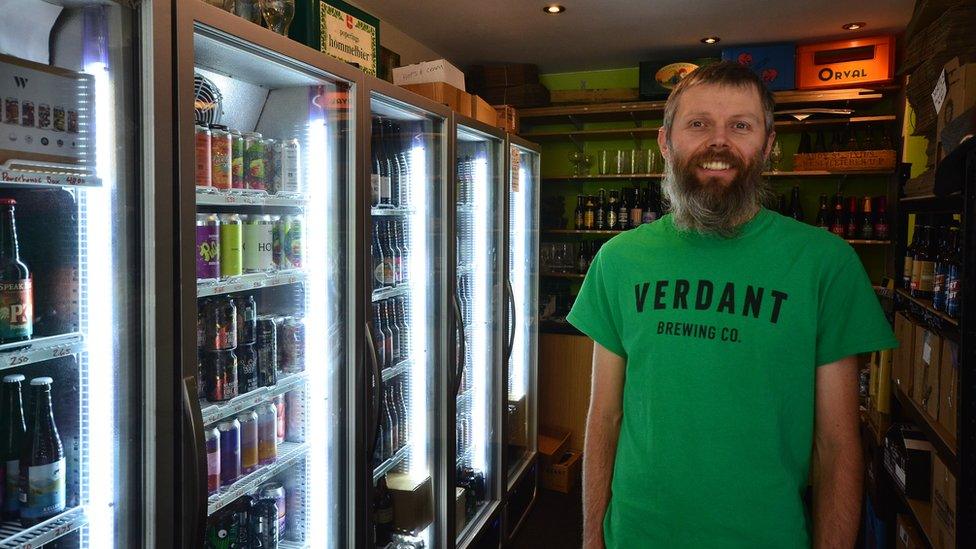
Beer shop owner Chris Harper says he feels 'survivor's guilt' about being classed as an essential retailer
He thinks 2021 will see more closures.
"You go down Fore Street now, and it's a ghost town. I do think that's a credit the people of Exeter who are taking the rules seriously and staying home, but if you're a retailer it's not what you want to see - ever.
'Optimistic'
"I do have a bit of survivor's guilt being allowed to be open right now when I can see so many of my fellow shop owners shuttered up."
Nicky Edmunds owns a gift shop with branches in Exeter and Tavistock, who cannot trade at the moment.
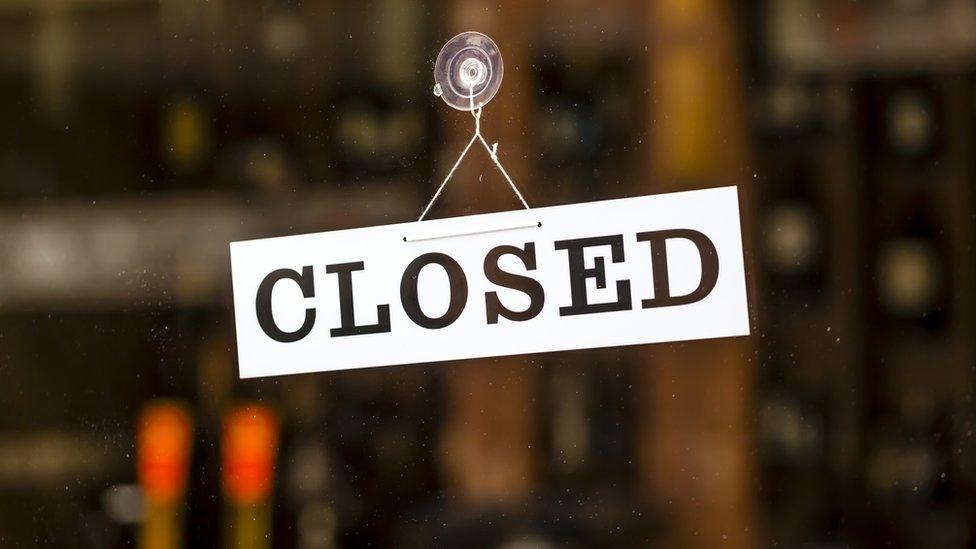
"We've seen significant decrease in footfall in Exeter, not just during this lockdown, but since Covid reared its head," she says.
But despite being closed at the moment, she is more optimistic about the future for independent retailers once restrictions end.
Nicky says: "I do believe independents actually stand a strong chance of thriving after the pandemic and the reason for that is, communities want small, independent shops.
Like every major town and city, several well-known high street retailers with a presence in Exeter have become insolvent during the pandemic, including Debenhams, and across the UK, more closures and job losses would follow once the fallout from those retail businesses in administration becomes known, according to Professor Bamfield's research.
"We're able to adapt in ways that those larger businesses aren't," says Nicky, "but I don't want to see any retailers go."
Related topics
- Published20 January 2021
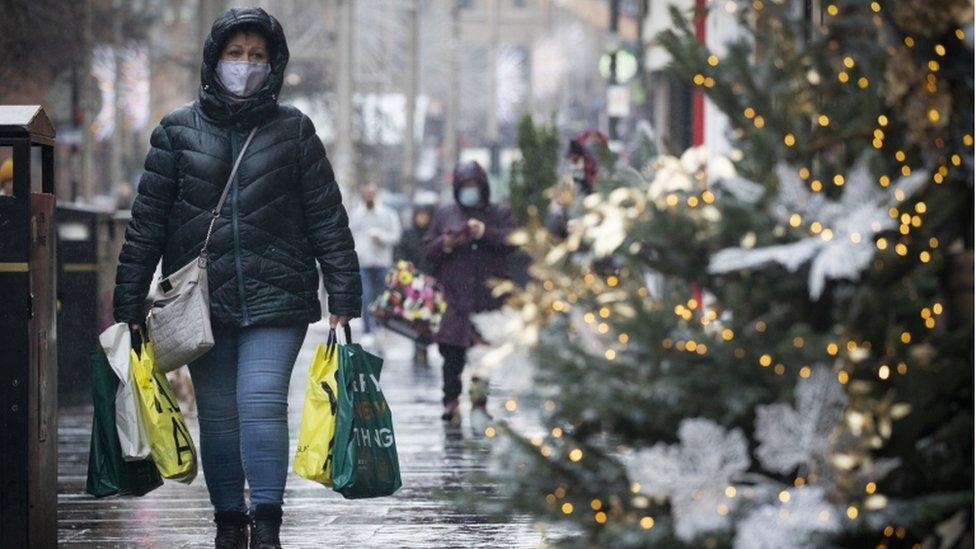
- Published12 January 2021
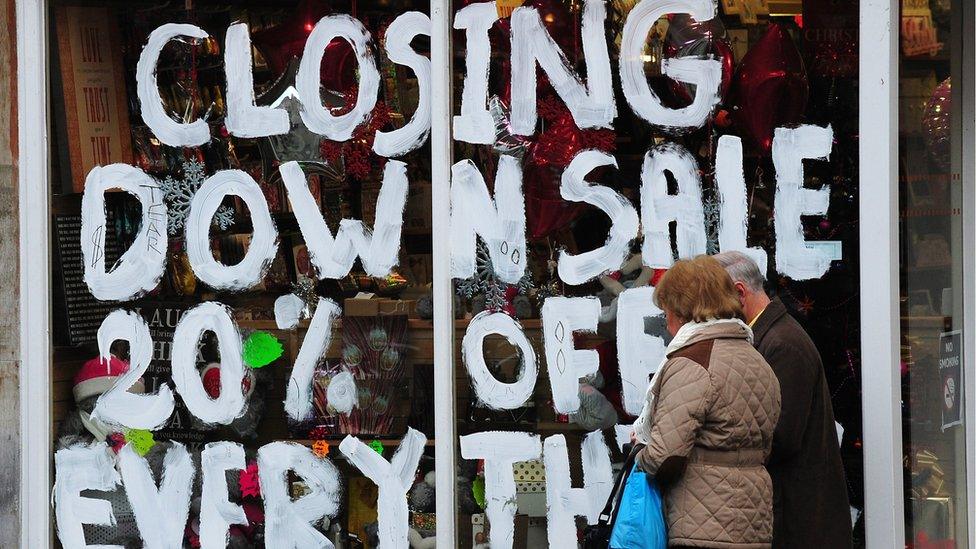
- Published8 January 2021
